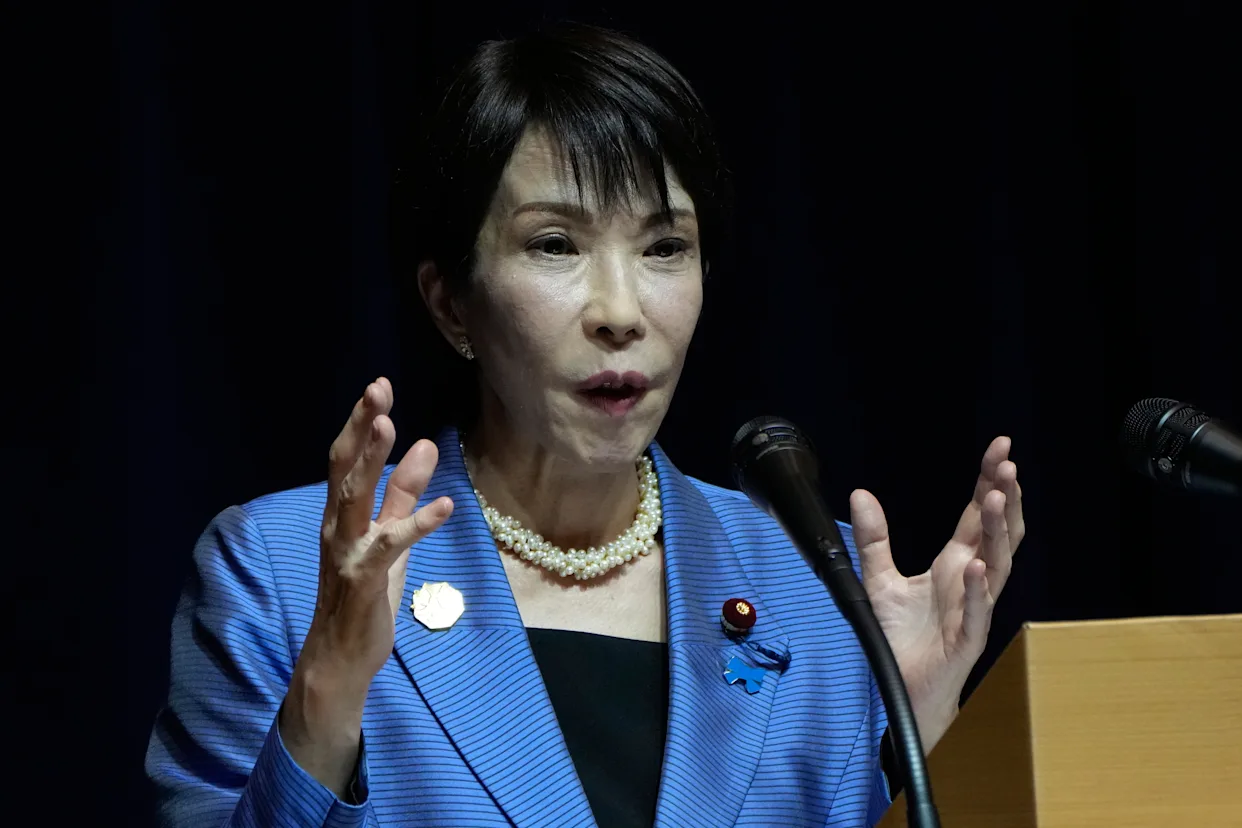A fresh diplomatic storm has erupted between Japan and China following comments by Japanese Prime Minister Sanae Takaichi that a Chinese military move against Taiwan could amount to an existential threat to Japan — and therefore justify Japanese military involvement. The Chinese reaction came swift and sharp, underscoring how delicate the balance remains in East-Asian geopolitics.
What Was Said
In a session of Japan’s parliament, Prime Minister Takaichi was asked about what kinds of scenarios would trigger Japan’s exercise of its right to collective self-defence under its 2015 security legislation. She responded that if China employed warships or military force against Taiwan — for example instituting a naval blockade or preventing U.S. reinforcements — then such an act could be regarded as “a survival-threatening situation” for Japan.
This language marked a clear shift from previous Japanese leaders who have historically skirted explicit references to Taiwan in such contexts.
China’s Blow-Back
The response from Beijing was harsh. China’s Foreign Ministry charged that Japan was interfering in its internal affairs and infringing on its sovereign rights regarding Taiwan. A particularly inflammatory moment came when Chinese Consul General in Osaka, Xue Jian, posted on social media a message that threatened, in strong language, Japan’s government following Takaichi’s remarks. Although that post was later deleted, Tokyo lodged a formal protest, describing the comments as “extremely inappropriate.”
In Beijing, spokespersons called Japan’s stance “dangerous” and warned of serious consequences if Tokyo continued down this path.
Diplomatic Stakes and Context
This exchange comes less than a month after Takaichi became Japan’s first female prime minister and shortly after her meeting with Chinese President Xi Jinping at a regional summit — where both nations publicly reaffirmed a commitment to stable relations. The discord, therefore, signals that underlying tensions may be deeper than surface-level diplomacy suggests.
Japan and China are major trading partners, yet they are simultaneously locked into strategic rivalries — from maritime disputes in the East China Sea to competition for influence across the Indo-Pacific region. Taiwan remains one of the thorniest issues: China regards it as a breakaway province, while Japan (along with the U.S.) views peace in the Taiwan Strait as directly tied to regional security and its own national interest.
Why It Matters
- Regional security implications: A Japanese government publicly framing a Taiwan conflict as potentially requiring Japanese military action raises the stakes in East Asia and could prompt both domestic and international recalibrations.
- Japan’s defence posture: Takaichi’s comments reflect Japan’s broader trend toward strengthening its defence capabilities and adopting a more assertive security policy — a move China watches closely.
- Bilateral relations at risk: The fact that a diplomatic spat has erupted so soon after a handshake summit underscores the fragility of Japan-China ties. Economic cooperation could be threatened if strategic and security issues come to dominate the agenda.
- Taiwan as flashpoint: The Taiwan question remains a highly sensitive trigger. Any hint of external involvement or defence commitments around Taiwan can provoke strong reactions from Beijing, which views such moves as red-lines.
What Comes Next
Tokyo has said it will stick to its “one-China policy” while also emphasising the importance of stability in the Taiwan Strait. Prime Minister Takaichi attempted to clarify her comments, calling them hypothetical and reaffirming that Japan remains committed to diplomacy. However, the incident will likely push Japan to reassess both its diplomatic messaging and defence posture.
Beijing, meanwhile, has intensified its warnings and may respond with both diplomatic and economic measures if Japan continues to escalate. Observers will also keep a close eye on whether Japan updates its defence strategy or enters into closer military coordination with allies — especially the U.S.
In short, what began as a parliamentary comment has expanded into a broader test of Japan-China relations and the strategic status of Taiwan in the region.
Summary:
Japanese Prime Minister Takaichi’s remarks that a Chinese attack on Taiwan could threaten Japan’s survival triggered a diplomatic backlash from China, highlighting tensions in an already volatile region. With defence and sovereignty issues at play, the unfolding dispute may reshape relations between Tokyo and Beijing and influence how Japan positions itself in future Taiwan-strait contingencies.
















Leave a Reply